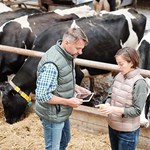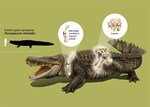Search - Research
361 - 370 of 774 results
-
£5 million funding awarded to transform the UK Food System to address the country’s needs for health and sustainability
The Royal Veterinary College is among the world-leading research bodies which will drive the UK’s Food Systems Partnership for Sustainable Food Future – Centre for Doctoral TrainingA partnership of leading universities, including the Royal Veterinary College (RVC), have been …
-
Wildlife health considerations in conservation translocations
A team of researchers, including Katie Beckmann, a PhD student at the Royal Veterinary College (RVC), have conducted a study into the health outcomes in wildlife reintroduction projects. Conservation translocations as they are formally termed are …A team of researchers, including Katie Beckmann, a PhD student at the Royal Veterinary College (RVC) …
-
RVC and The Animal and Plant Health Agency awarded OIE Collaborating Centre
OIE Collaborating Centres are centres of expertise in a specific designated sphere of competence relating to the management of general questions on animal health issues.The Royal Veterinary College (RVC) and the Animal and Plant Health Agency (APHA) have been jointly …
-
Structure and Motion for Schools
Professor Alan Wilson and his team are returning to Cheltenham Science Festival to take part in Science for Schools. Science for Schools 2015 is an opportunity for children from around the country to leave the classroom behind and engage with … -
Testing the locomotor superiority hypothesis for early dinosaurs
Professor John Hutchinson has been awarded an ERC Advanced Investigator grant called "Testing the locomotor superiority hypothesis for early dinosaurs". This project seeks to unify evolutionary and biomechanical research by achieving a “functional …Professor John Hutchinson has been awarded an ERC Advanced Investigator grant called "Testing the …
-
RVC join forces with BBC for Cat Watch 2014
The RVC Structure and Motion Lab team have joined up with the BBC and presenter Liz Bonnin for Cat Watch 2014 on BBC2 Horizon, October 7th, 8th and 9th. See our scientists revealing how town cats, village cats and farm cats spend their days and … -
PET-Risk: Transmission of multidrug-resistant bacteria between pets and humans during different types of animal infection
Antimicrobial resistance in bacterial pathogens is considered one of the most serious threats to modern medicine by the World Health Organisation, and infections due to multidrug-resistant (MDR) bacteria are becoming increasingly difficult to treat …Antimicrobial resistance in bacterial pathogens is considered one of the most serious threats to …
-
New Pet Plan Charitable Trust award
Dr Rebecca Geddes has been awarded a Pet Plan Charitable Trust Pump Priming Grant to research “Is upper urinary tract stone formation in cats caused by disrupted calcium-phosphate metabolism?” Kidney stones are a common problem in many species, …Dr Rebecca Geddes has been awarded a Pet Plan Charitable Trust Pump Priming Grant to research “Is …
-
Ancient bus-sized crocodile had extra vertebra to assist movement, new study shows
An ancient caiman that weighed as much as an Asian elephant (3 tonnes) and almost was as long as a bus (8 metres) had unique specialisations to help it move, a new study shows. The Royal Veterinary College’s (RVC) Professor John Hutchinson joined … -
Lymphoma cancer most common in old male cats according to RVC
The RVC had published the world’s largest study on lymphoma cancer in cats under general veterinary care. This new study revealed that approximately 1 in 2000 cats (48 per 100,000) under first opinion veterinary care are affected by lymphoma every …










